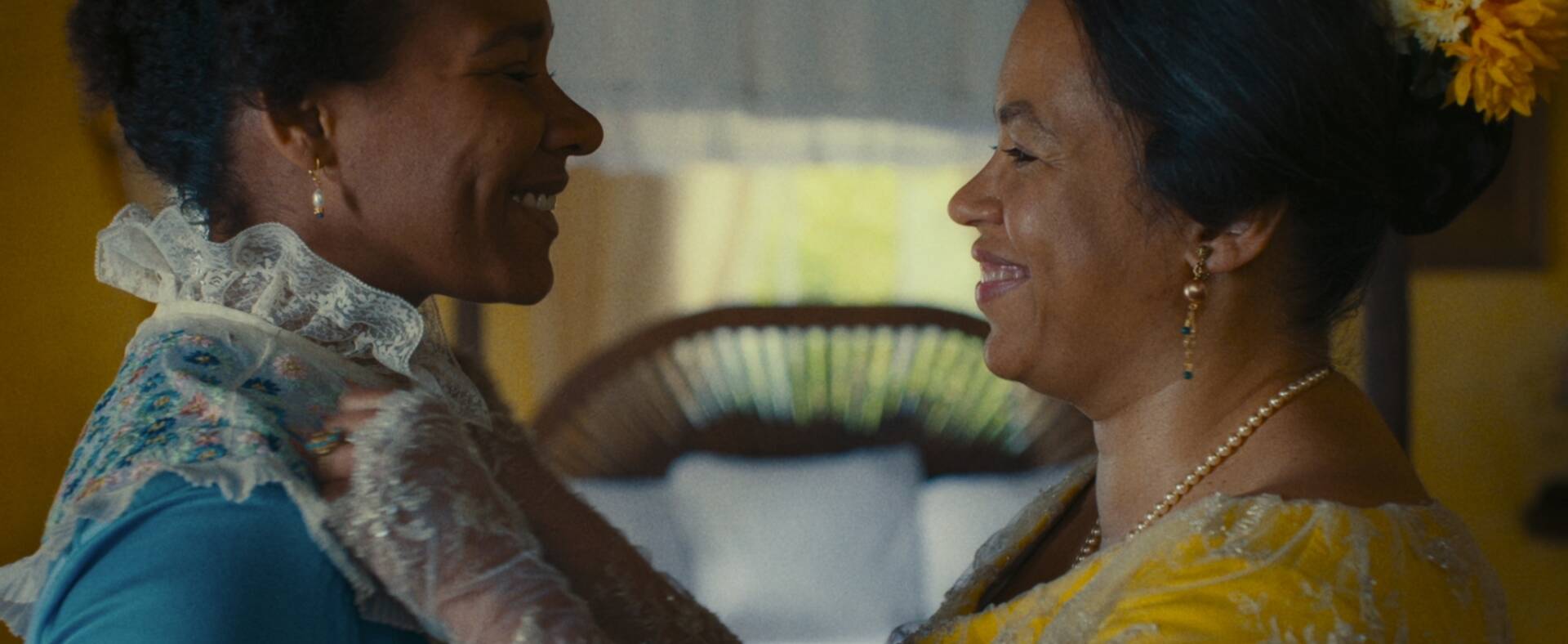Empire is the winner of the Nordic Council Film Prize 2023.
Summary
St. Croix, the Danish West Indies, 1848. Anna Heegaard and Petrine are close friends. Although both are women of colour, their living conditions are very different – Anna is free and owns the enslaved Petrine. Anna shares her life with Danish Governor General Peter von Scholten at her country house, where she manages the home, her fortune, and her beloved and trusted housekeeper Petrine. Things are seemingly fine until rumours of a rebellion begin to swirl. Which side are Anna and Petrine really on, and is it the same one?
The Nordic jury’s motivation for the winning film:
It’s a rare thing to come across a film that’s so confidently and thoroughly thought through in every single detail. The director Frederikke Aspöck does not stumble. Empire takes a new and fresh stance on racism and power plays. Centred around Denmark’s colonial times at the West Indies back in 1848 at St. Croix, it is brave, bold, and ambitious of the filmmakers to pursue this serious and traumatising story in such personal, playful and, at some points, even humoristic and surprisingly beautiful ways. They look back at history and it doesn’t look good. Empire is a story about a very specific part of Denmark’s past, and it is both deeply relatable to our current dilemmas and to a global audience.
With hindsight, the film convincingly interprets the slave rebellion against Danish colonialism, in highly complex ways. Everyone is struggling to find a place within the hierarchy of race and class. Loyalties and agendas shift, making the story unpredictable and riveting. The screenwriter Anna Neye, who also plays the leading character, has created a diverse and previously unheard story where all the characters have flaws, and many have inner ethical struggles.
The jury chose Empire from a selection of Nordic films of exceptionally high quality. The film combines excellent screenwriting with a striking visual narrative and soundscape that make for a powerful cinematic experience. All in all, the filmmakers have served the audience a beautiful, sweet, and colourful treat laced with bitter poison and low-key rage.
We congratulate the producers for allowing these powerful and original voices to be heard in our Nordic cinemas.
The national jury’s motivation for the nomination:
It is in itself ambitious to make a film about one of the most shamefully under-examined topics in Danish history, namely the Danish slave trade in the West Indies. But it is seriously brave to do it in a playful way that mixes satire with dramatic seriousness in the depiction of the friendship between two black women of different status at St. Croix, leading up to the slave revolt of 1848.
This is what makes Empire so unique in Danish film and in a Nordic context. Conceptualist and screenwriter Anna Neye, in partnership with director Frederikke Aspöck, portrays the racist power structures that permeate Danish colonial rule with a sharp and indignant gaze, all packaged in an original aesthetic, with a sensational soundtrack and impressively executed scenography that emphasise the absurdity of the atrocities.
While the vast majority of historical films play it safe, Empire boldly breaks free of the templates, which is why a unanimous Danish jury nominates this film for the 2023 Nordic Council Film Prize.
